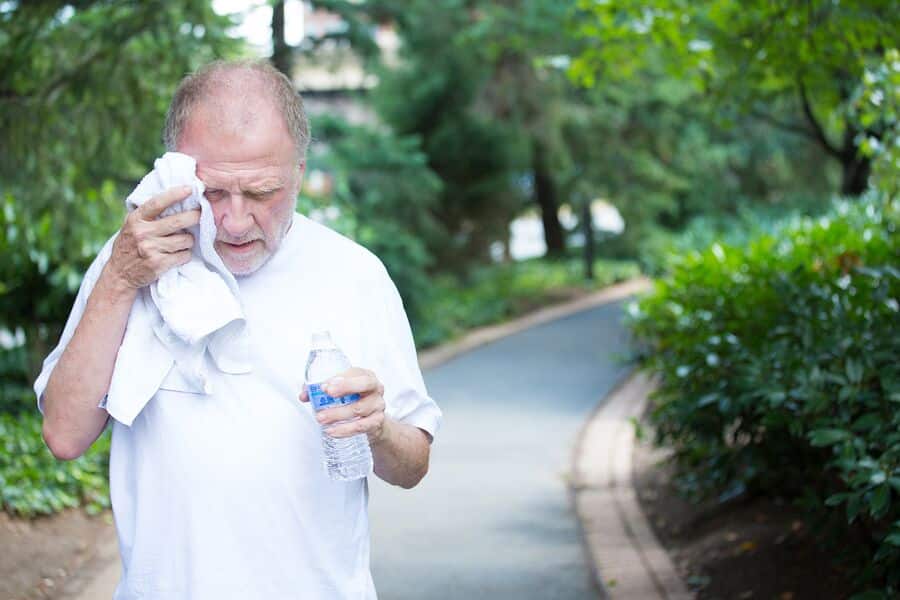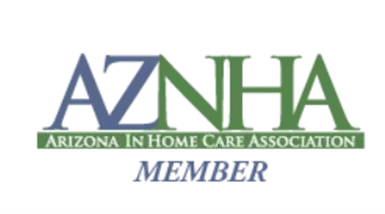Did you notice something different about your elderly loved one? Are you unsure of what is going on with them? Maybe you suspect they might be dehydrated, but you aren’t quite sure. There are some symptoms of dehydration in elderly adults that can help you to determine if they are dehydrated. If you determine they are, make sure they are taking in more fluids or see their doctor to figure out what else can be done. Remember, dehydration can escalate quite quickly, so you want to keep a close eye on the symptoms.

Initial Symptoms
Some of the initial symptoms that you might notice if your elderly loved one is dehydrated are darker urine, dizziness, excessive thirst, increased fatigue, dry mouth, dry skin, muscle cramps. If you do notice these symptoms in your elderly loved one, make sure they start drinking more water and eating more fluid-filled foods right away. The sooner you do this, the sooner they can be hydrated and prevent further complications.
Confusion
Confusion is another symptom of dehydration in elderly adults. The problem is there are other health issues that can cause confusion in elderly adults, as well. If your elderly loved one is becoming confused, have them drink some water. If that doesn’t help, see if they can tell you what is wrong. If that doesn’t work, schedule an appointment with their doctor to determine the cause of their confusion.
Low Blood Pressure, Rapid Heart Rate, and Low Urine Output
Three other symptoms of dehydration are low blood pressure, rapid heart rate, and low urine output. If you notice that your loved one is experiencing these issues, especially if they are experiencing all three of them, they could be dehydrated.
Constipation
Constipation is another symptom of dehydration in elderly adults. If your loved one is experiencing constipation, have them increase their fluid intake. This could be through water, vegetables, fruits, and other fluid-filled foods. While it won’t be an instant fix, having them do this over the course of days could help hydrate them again.
Inability to Produce Tears or Sweat
Other symptoms of dehydration in elderly adults is the inability to produce tears or to sweat. This can get dangerous very quickly. If your elderly loved one is having these issues, make sure they are drinking enough water. If you can’t keep an eye on this, be sure their senior care providers are keeping an eye on their fluid intake.
These are some of the symptoms of dehydration in elderly adults. If your loved one is dehydrated, be sure they instantly start increasing their fluid intake. Dehydration can get serious very quickly. Don’t let that happen to your loved one.
If you or an aging loved-one are considering hiring Elder Care in Chandler, AZ, or anywhere in the East Valley, please contact the caring staff at Legacy Home Care.
Call (480) 777-0070
Sources
Medlineplus.gov
Emedicinehealth.com
Legacy Home Care has been serving the valley since 2007. We are family owned and operated with over 75 caregivers. We offer a customized care plan that includes services such as: Hourly Senior Home Care, 24-Hour Home Care, Dementia Care, Personal Care and Companion Care. Also ask us about our Veterans' Home Care program.
- Is Your Senior Parent Getting Enough Sleep? - April 24, 2025
- How to Cope with a Family Member Living with Dementia? - April 8, 2025
- Health Dangers of Stress for Seniors - March 20, 2025



